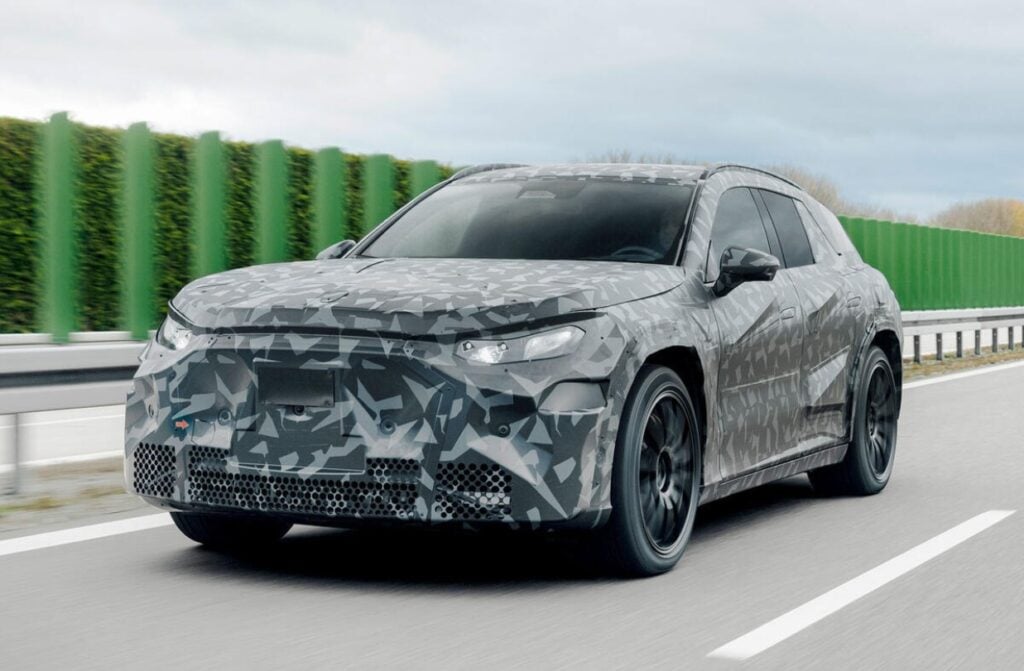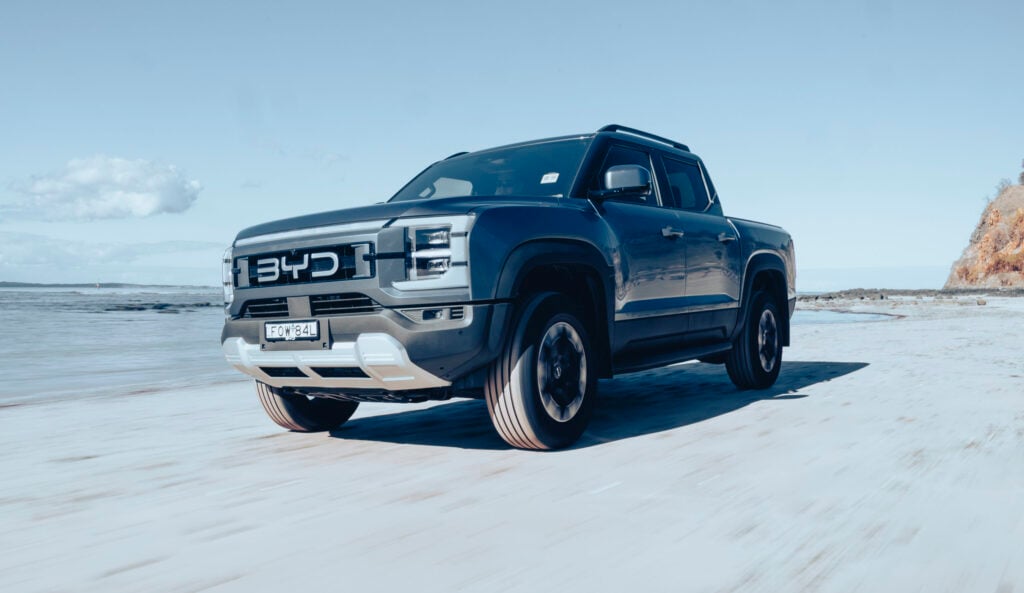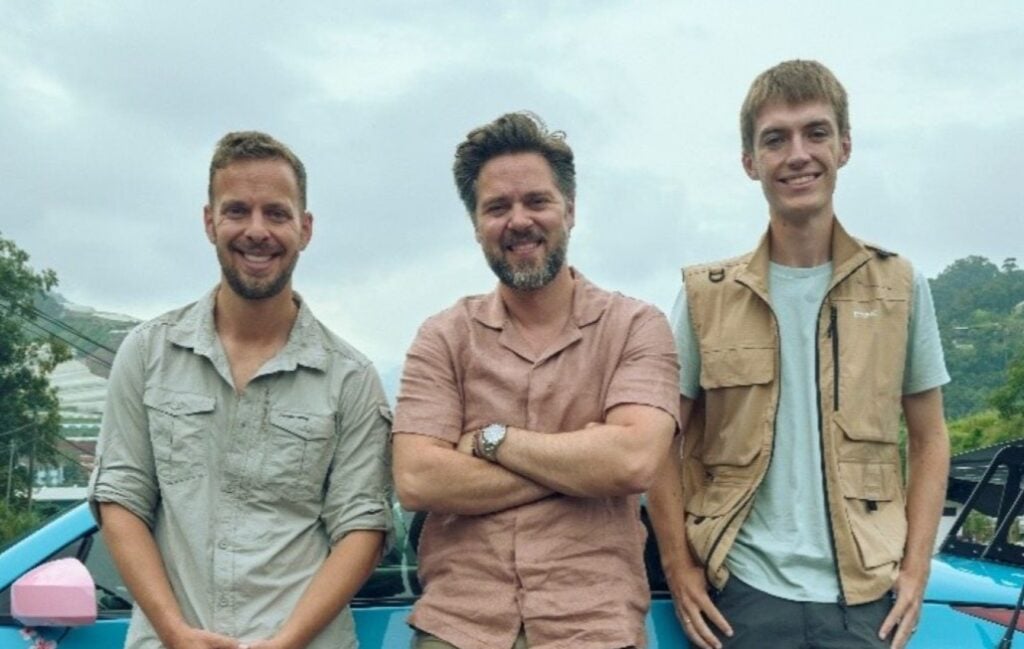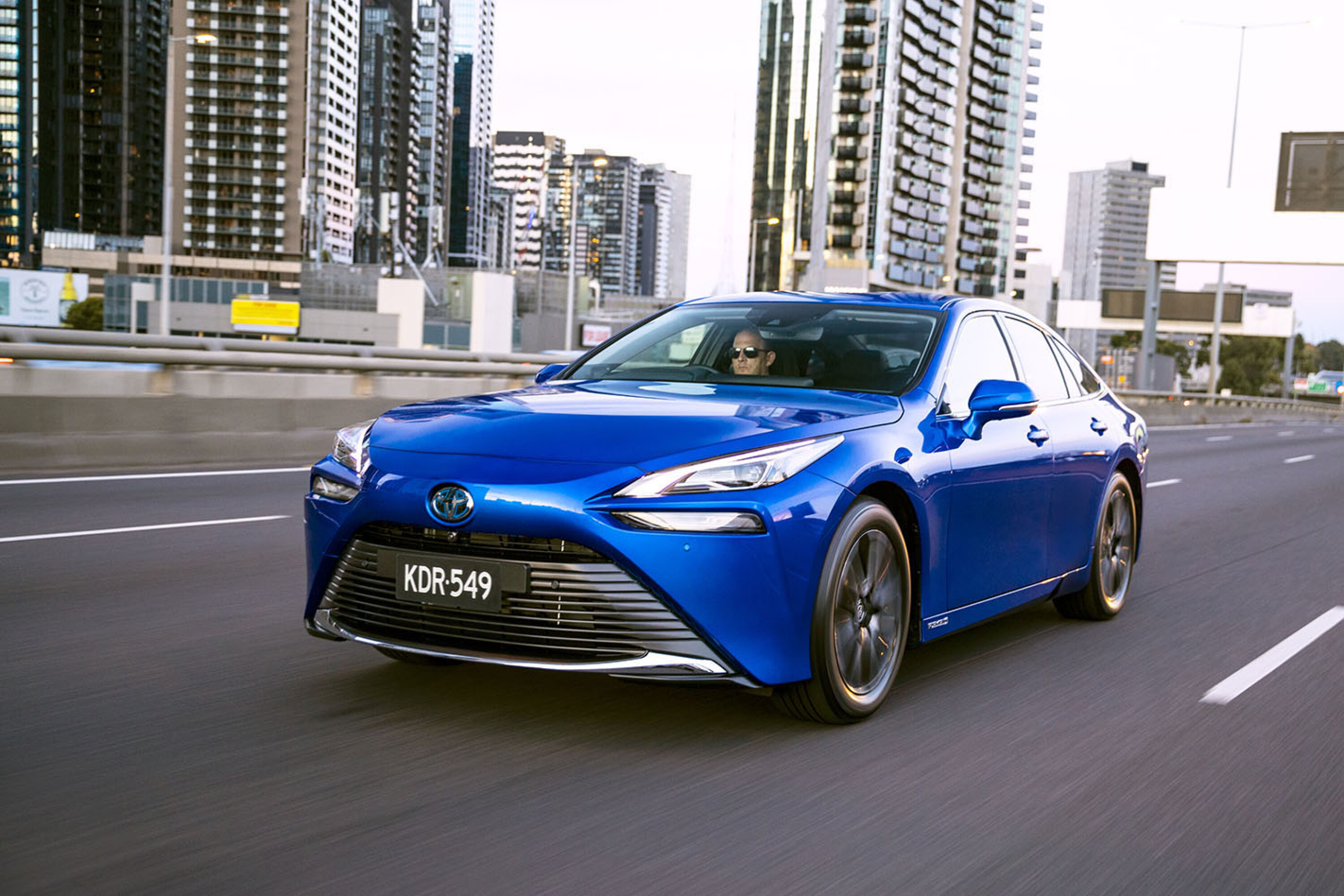
Snapshot
- Toyota chairman claims hybrids are better as rivals cut back EV production
- Admits hydrogen Mirai was unsuccessful, focus on commercial vehicles instead
- Hyundai developing 2nd-gen Nexo for 2025 launch
Hydrogen fuel-cell electric vehicles (FCEV) are on the move, with Toyota stressing its hybrid approach and Hyundai rumoured to launch a new Nexo.
The Wall Street Journal [↗] reports Toyota chairman and former chief executive Akio Toyoda re-emphasised its ‘diverse powertrain’ strategy amid automakers – including Volkswagen, Ford and General Motors – cutting back EV production due to lower than expected demand.
With supply returning to normal for some models and increased cost-of-living, there’s also been the supply ‘bullwhip effect’ that has slowed down sales overseas.
Meanwhile, petrol-electric hybrid demand continues to be strong in some countries. Locally, Toyota has paused sales of the popular Camry Hybrid due to “extraordinary demand” that has extended wait times beyond two years.
Despite this and the higher purchase price tag, in 2023, the Tesla Model 3 electric sedan has doubled the Camry in registration data to the end of September.
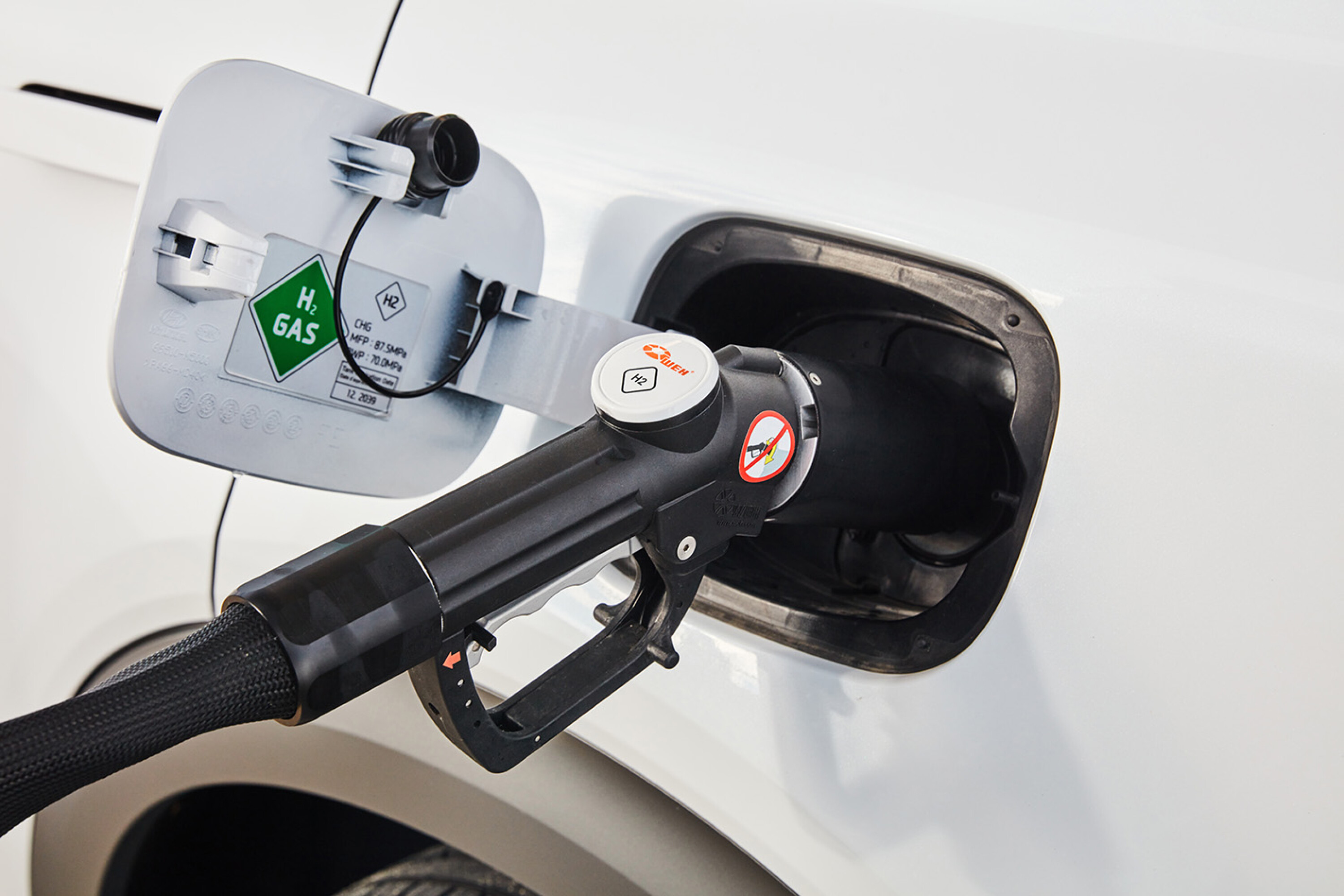
Toyota to focus on commercial hydrogen vehicles
With low uptake of the hydrogen-powered Toyota Mirai sedan globally, the Japanese automaker will focus on the commercial sector instead.
Toyota’s technical head Hiroki Nakajima admitted to Autocar [↗] the complexity of setting up public hydrogen infrastructure has been the key barrier to the Mirai FCEV.
“We have tried Mirai but not been successful,” Hiroki said.
“Hydrogen stations are very few and difficult to realise, so Mirai is smaller [in volume].”
Instead, Hiroki told the British publication that commercial hydrogen vehicles are the “most important area to try to proceed on with”, where refuelling infrastructure is only needed at the start and finish destination for trucks.
Despite the battery-electric first focus, Toyota will still explore downsizing components, such as the fuel cell stack and tanks, for hydrogen passenger cars.
Australia has only four publicly-available hydrogen fuel-cell refuelling stations across the country, which require large pressurised tanks and high-pressure pumps.
In contrast, there are nearly 400 battery-electric vehicle charging locations and the key advantage of being able to plug in at home.
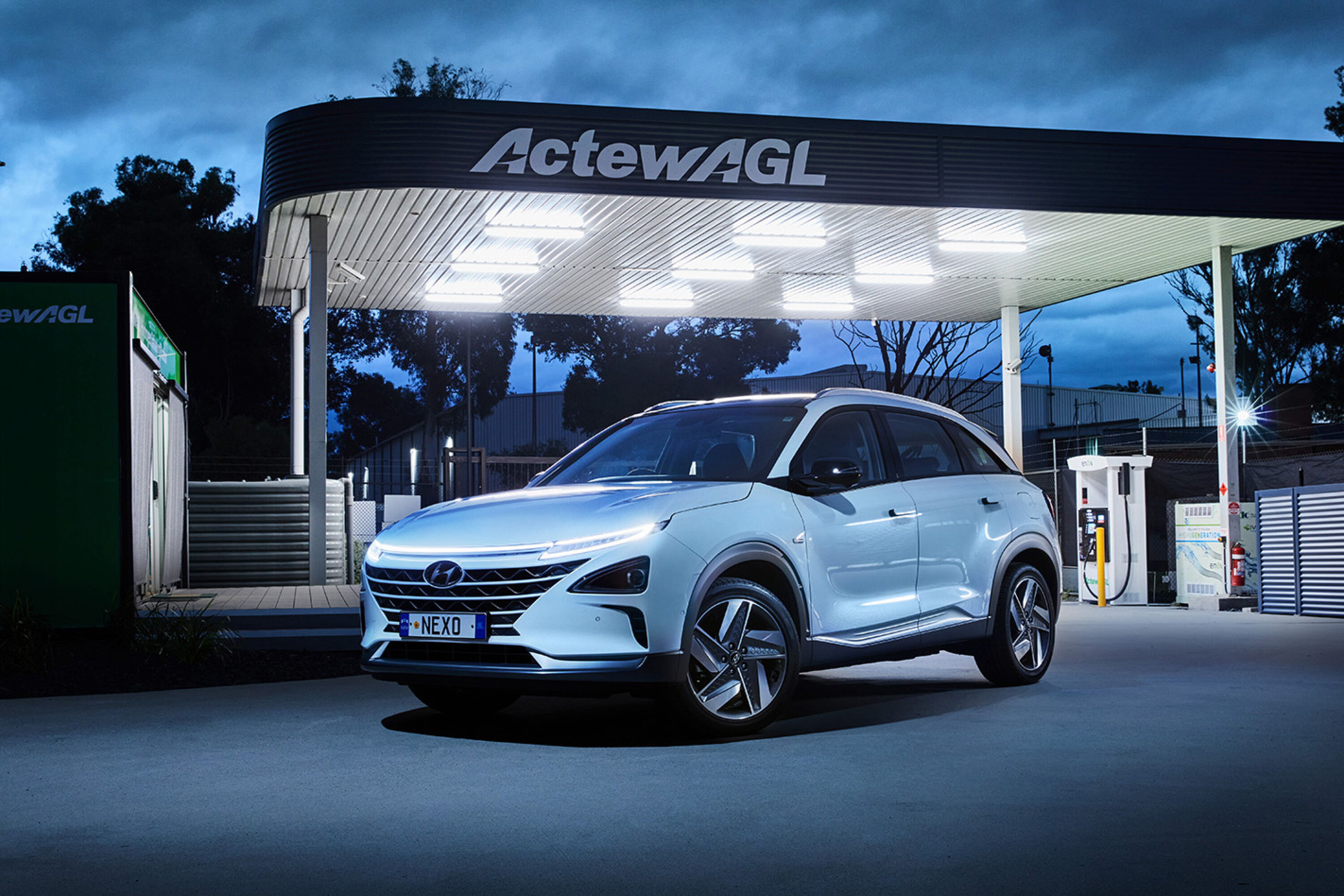
New 2025 Hyundai Nexo coming
Beyond the Sea of Japan, Hyundai is reportedly developing the second-generation Nexo hydrogen SUV for a launch in early 2025.
According to the Korean Car Blog [↗], it plans to gradually roll out the new Nexo FCEV in select markets, including South Korea, Europe, and the United States.
The South Korean carmaker is said to be aiming to produce 30,000 units per year – which is triple the current first-generation model – and should feature an improved FCEV powertrain.
The current Hyundai Nexo and Toyota Mirai are available in Australia, but only on a lease for select commercial customers (often government organisations).
We recommend
-
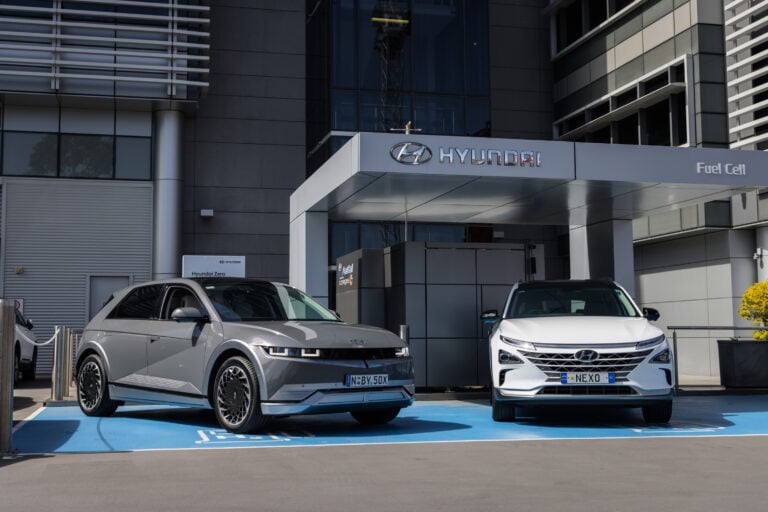 Advice
AdviceHydrogen or battery-electric cars: Which is right for Australia?
Why are battery EVs starting to take off, while hydrogen continues to be stuck at ground level?
-
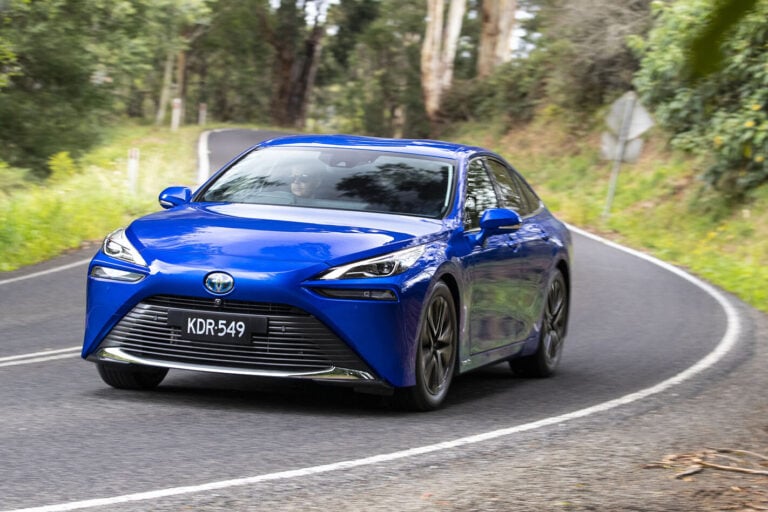 Reviews
Reviews2021 Toyota Mirai review
The second-gen Mirai's hydrogen fuel-cell powertrain is its headline act, but what is it actually like to drive?
-
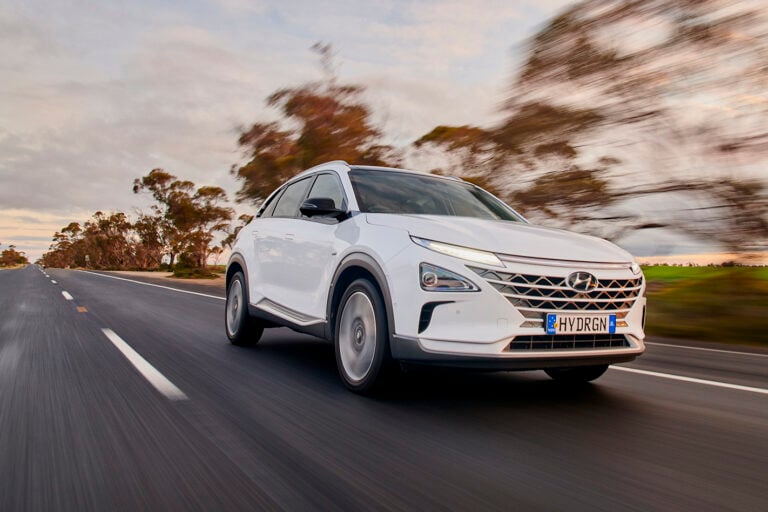 Reviews
Reviews2021 Hyundai Nexo FCEV review
The Nexo is the first publicly available hydrogen vehicle in Australia, but is it any good?


